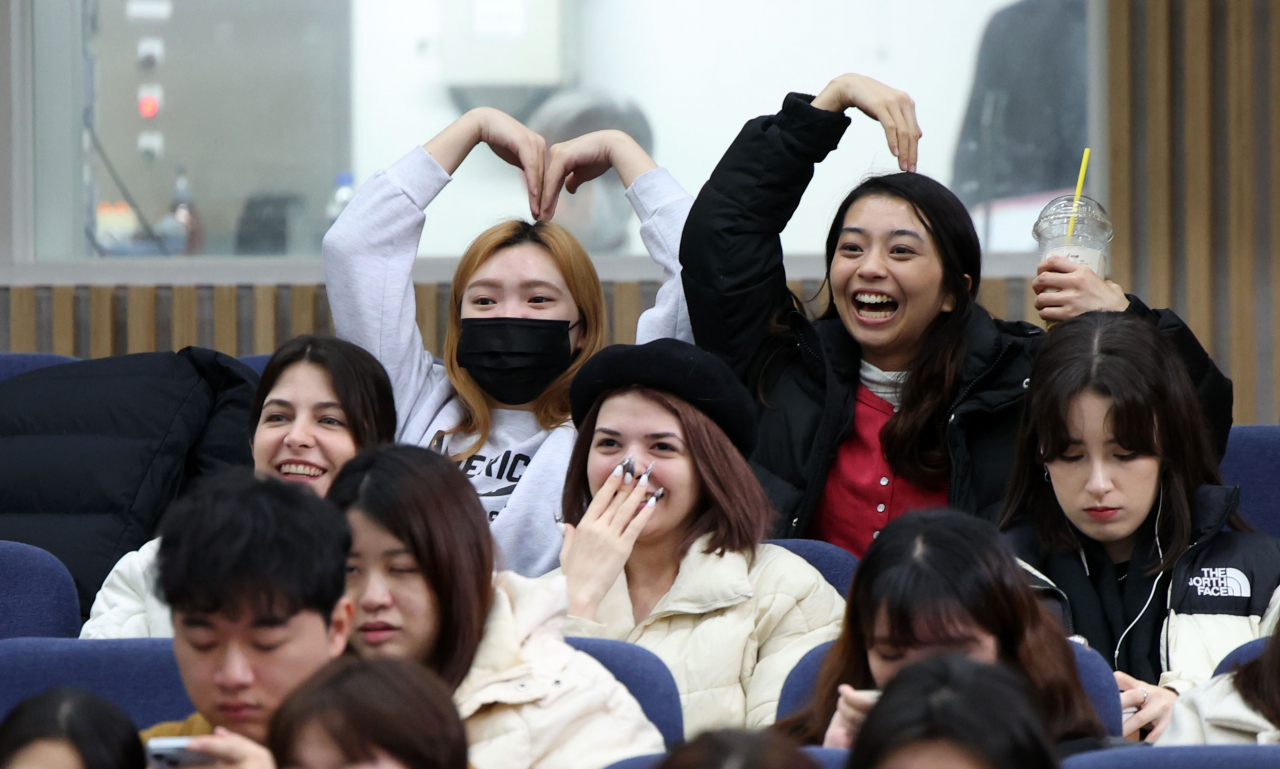Number of international students grows to 182,000 last year: ministry
134 S. Korean universities recognized by Education Ministry for global competency in academic curriculum
By Lee Jung-joo
Published : Feb. 7, 2024 - 15:14

South Korea saw up to 182,000 new international students in 2023, an increase compared the 167,000 in 2022, said the Ministry of Education on Wednesday.
To enhance Korean universities’ management of the increasing numbers of international students and to respond to the problem of illegal immigration among international students, the Ministry of Education and the Ministry of Justice annually examine the universities' internationalization competencies.
In 2023, among the universities that registered for the examination in advance, up to 134 universities were recognized for their global competency in their academic curriculum for meeting the education ministry’s standards. Such standards include having less than 2 to 3 percent illegal immigration rates, whether the university has plans and infrastructure for providing education with global perspectives, whether the university provides support for the international students’ education, life and employment opportunities and more.
For language exchange programs, up to 90 universities were recognized for their global competency, under standards such as having less than 8 to 12 percent of illegal immigration rates, the university’s business plan and infrastructure for its language exchange program, having a completion rate above 50 percent and more.
The number of universities recognized for their global competency increased compared to 2022, as 120 universities were recognized for their academic curriculum and 75 universities were recognized for their language exchange programs.
Once a university is verified, the two ministries will provide benefits such as relaxed screening standards when issuing international student visas and permitting up to five hours of part-time work on the weekdays. Normally, an international student in Korea must get permission from the university and the immigration office and apply for a part-time employment visa if they wish to have a part-time job.
The universities that were recognized for their global competency will be able to get these benefits from February for international students going to such universities for their study abroad experience in Korea. Each university’s status will be maintained for three years until February 2026 and will be monitored annually by the ministries to make sure they still meet the given standards.
For universities that weren’t verified for their global competency, the ministries will enhance the visa screening processes for students who apply to those universities by strengthening their language proficiency and financial capability standards.
Meanwhile, up to 20 universities were restricted from student visa issuances for their academic curriculum and their language exchange programs. Starting from the fall semester of 2024, such universities will be restricted from issuing student visas to international students and may apply for consulting sessions with the National Research Foundation of Korea if they wish.
Further details regarding the universities recognized for their internationalization competency can be found at www.studyinkorea.go.kr or www.nrf.re.kr. The Ministry of Education also plans to provide further information to diplomatic offices to promote the universities to international students who wish to study in Korea.




















